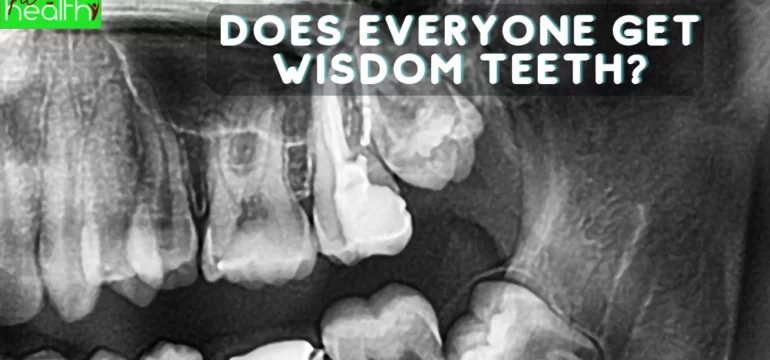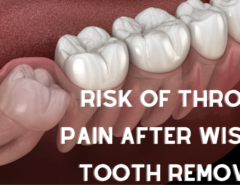If you’re one of the many people who wonder if you’ll ever get wisdom teeth, or if everyone gets them, then we’ve got the answer for you here! While not everyone does indeed get wisdom teeth, and there are many different reasons why this happens, it can be helpful to understand what causes this phenomenon so that you’re prepared if and when it happens to you. Does Everyone Get Wisdom Teeth tips on how to prepare yourself, you can rest assured that when your wisdom teeth do pop up, they won’t create any problems!
Why Do We Have Wisdom Teeth
It’s a mystery why we have wisdom teeth. After all, they’re just extra teeth that can crowd our mouths and cause problems. Some scientists believe that wisdom teeth were once useful for our ancestors who had to chew tougher food. But as our diets have changed, we don’t need them anymore. Others think that the jaws of modern humans are simply too small for wisdom teeth to come in without causing problems.
Why Are They Useful
It’s a common question: does everyone get wisdom teeth? The answer is no, not everyone gets wisdom teeth. In fact, only about 60% of the population will develop them. And of those that do, not all will have all four wisdom teeth. So why are they called wisdom teeth anyway? The term wisdom comes from an old English word meaning to know or understand. with their full set of wisdom teeth are seen as wise because they’ve reached the end of their dental development and therefore know what it takes to maintain healthy gums and teeth.
Who Has Them and Who Doesn’t
Wisdom teeth are the third and final set of molars that most people get in their late teens or early twenties. But not everyone gets wisdom teeth. In fact, about 35% of people are born without them. So, what’s the deal with wisdom teeth? Let’s take a closer look.
Wisdom teeth usually start to come in between the ages of 17 and 25.
They typically erupt from the back of your mouth near the last molar on either side. The problem is that because our jaws are smaller than they used to be, wisdom teeth often don’t have enough room to grow properly. If you were born with impacted wisdom teeth (meaning they don’t have room to grow) then you might need surgery as soon as your wisdom teeth start coming in or you might develop dental problems later on.
When Do We Have Them Removed
Most people have their wisdom teeth removed between the ages of 17 and 25. The decision to remove wisdom teeth is usually based on a few factors, including: whether or not they are causing pain, if they are growing in correctly, and if there is enough room in the mouth for them. In some cases, people may choose to keep their wisdom teeth.
For example, sometimes it’s better to keep wisdom teeth that aren’t growing in correctly because they might still be useful later on in life. If you think you might want to keep your wisdom teeth when you’re older, talk with your dentist about what the best course of action is for you now.
How Can We Manage with Them
It’s a right of passage for many people to get their wisdom teeth removed. But what are they and why do we have them? Wisdom teeth, also known as third molars, are the last set of molars that come in at the back of your mouth. The reasoning behind having these third molars is not clear but it has been said that it may be so that can chew tough foods or so the tongue doesn’t push food up into the nose when chewing. The problem with wisdom teeth is that they sometimes don’t break through the gums all the way, which can lead to tooth decay and even infection.
What If There Are Problems
While most people will get their wisdom teeth without any problems, there are a small percentage of people who will experience issues. If your wisdom teeth don’t come in properly, they can become impacted, which can cause pain, infection, and damage to your other teeth. If you have any concerns about your wisdom teeth, be sure to talk to your dentist. They’ll be able to assess the situation and determine what course of action is best for you. If necessary, they may recommend extracting the tooth or even just removing part of it.
Final Thoughts
Most people have wisdom teeth, there are some who don’t. And of those who do have them, not everyone will need to have them removed. So if you’re wondering whether or not you’ll need to get your wisdom teeth removed, the best thing to do is talk to your dentist. They’ll be able to give you a more specific answer based on your individual situation.
Also Read:- Can You Eat Rice After Wisdom Teeth Removal?
FAQ’s | Does Everyone Get Wisdom Teeth
Is it possible to not get wisdom teeth?
It is possible to not get wisdom teeth! In fact, about 35% of the population is born without them. Additionally, it’s possible to have only partial eruption of wisdom teeth, or for them to come in fully but be misaligned.
Why do some people not get wisdom teeth?
Wisdom teeth are the third and final set of molars that most people get in their late teens or early twenties. But not everyone gets wisdom teeth.
Why do people have wisdom teeth?
Wisdom teeth are the third and final set of molars that most people get in their late teens or early twenties. They’re called wisdom teeth because they usually come in when you’re old enough to be considered wise.
Also Read:- Can I Brush My Teeth After Wisdom Teeth Removal?
Who is most likely to have wisdom teeth?
People who are most likely to have wisdom teeth are those who have a genetic predisposition. This means that if your parents or grandparents had wisdom teeth, you’re more likely to have them, too.
What race does not have wisdom teeth?
Caucasians are the least likely to have wisdom teeth, with only about 65% of the population developing them. Asians are next, with 75% of the population developing wisdom teeth.
What are the benefits of keeping your wisdom teeth?
Wisdom teeth can help with chewing and grinding food. They also provide support for the other teeth in your mouth. Additionally, wisdom teeth can add to the overall appearance of your smile.




